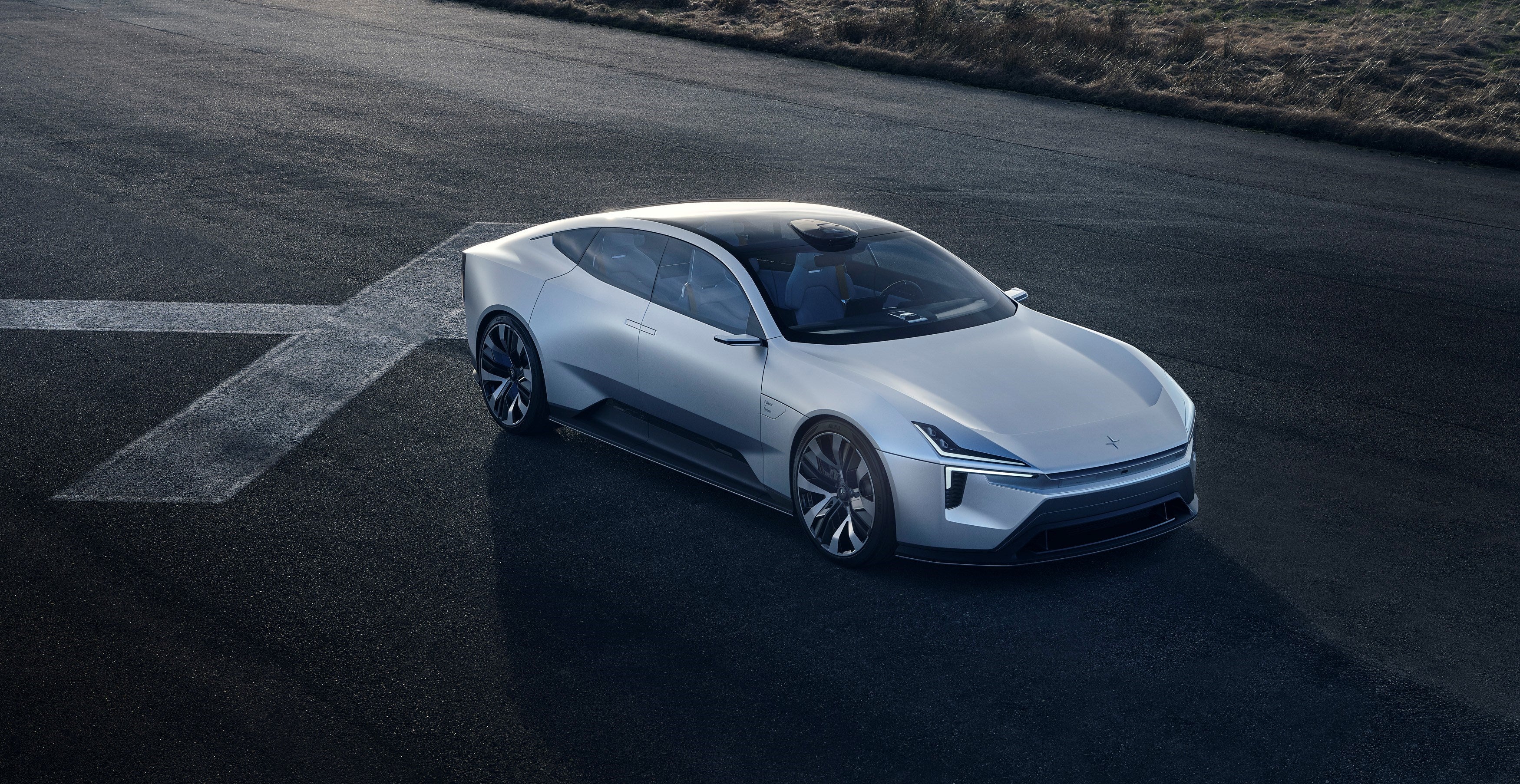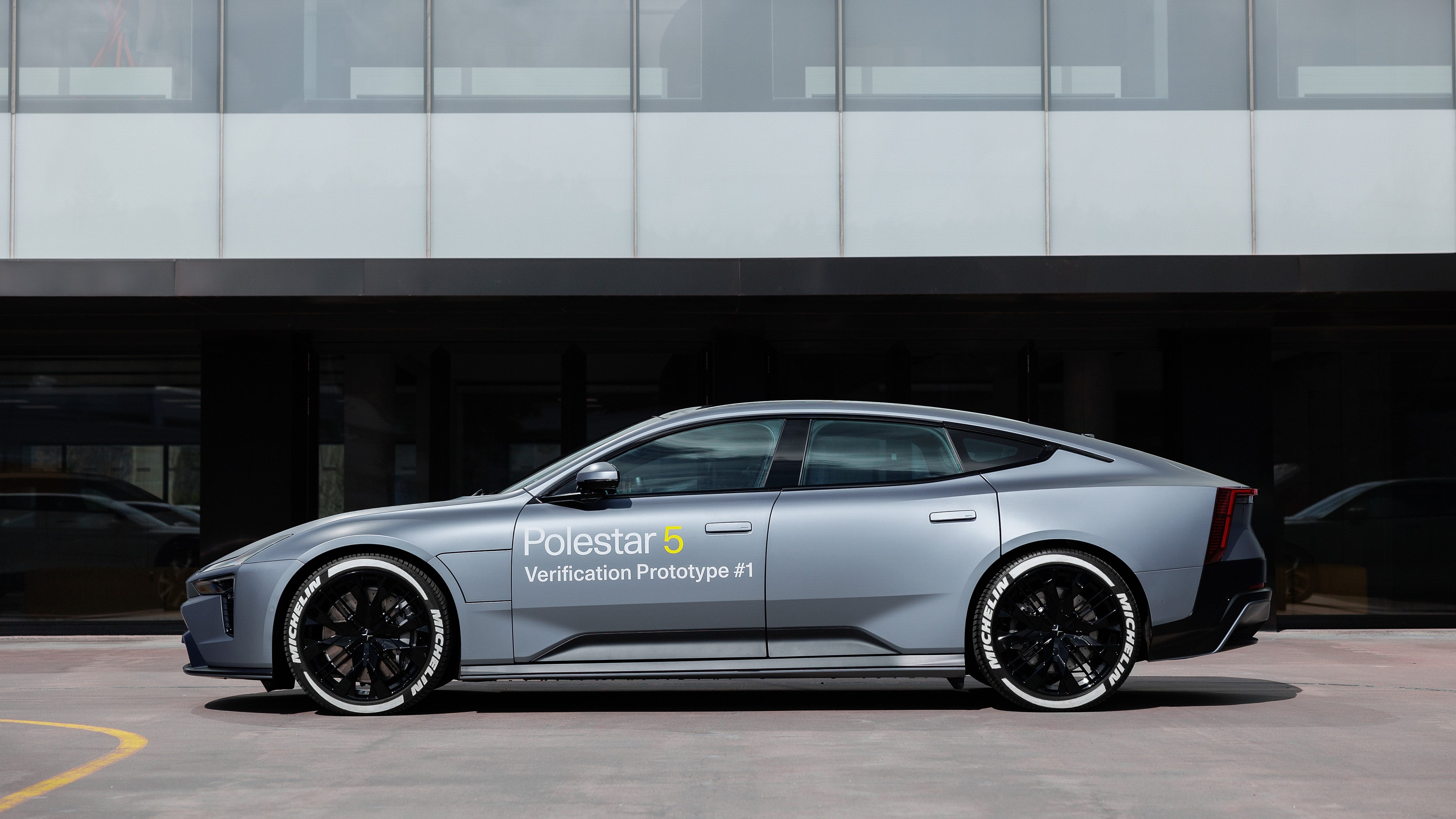
The Polestar 3 and Polestar 4 have only just landed, but already we’re looking forward to the Swedish company’s next electric car, called the Polestar 5.
No longer tied to Volvo, the Polestar 5 will be the company’s first car to use its own bespoke EV platform. That platform uses an 800-volt architecture – also a first for Polestar – unlocking the ability to rapid-charge at over 300 kW.
Due to launch later in 2025, the Polestar 5 is a four-door GT car to rival the Porsche Taycan, Lotus Eletre and Mercedes EQS. A production version of the Precept concept car from 2020, pictured below, the 5 combines high performance with a big battery and comfort in a bid to take Polestar into a sector of the market it hasn’t yet visited. Just like the 4, the Polestar 5 does not have a rear windscreen; instead it uses a camera and screen for its central rear-view mirror.
Read on to find out everything we know so far about the upcoming Polestar 5. This article will be updated as more information surfaces ahead of the launch later in the year.

Polestar 5 release date
Although Polestar hasn’t confirmed its launch plans just yet, we understand the 5 will be revealed in production form in 2025. The first deliveries will likely begin towards the end of the year, just as they did in late-2024 with the Polestar 3 and 4.
A Polestar 4 development vehicle wearing camouflage was spotted winter testing in the Arctic in December, indicating that the car’s electronic stability systems are still being worked on. This is perfectly normal and very much part of the development of modern cars; with a 2025 launch expected, this is likely the Polestar 5’s final trip up to the Arctic for cold weather testing.
Polestar 5 price

The Swedish carmaker hasn’t announced a price for the 5 just yet. However, the company states its “core competitors include the Porsche Panamera and Mercedes-Benz EQS.” Those start at £83,500 and £99,835, respectively, giving us a good idea of where the Polestar 5 might land.
For further context, the Polestar 3 – a large electric SUV with a big battery and long range, but lacking the Polestar 5’s 800-volt system – starts at £69,900 and rises to £81,500. The Polestar 4 – a smaller EV – is priced from £59,990 to £66,990.
In short, a little over £80,000 to around £100,000 is a likely ballpark figure for the Polestar 5.
Polestar 5 specification

As well as stating its intended competitors, Polestar has already revealed some performance figures for the 5. The company says: “Polestar 5 is an F-segment electric performance 4-door GT. Polestar 5 is expected to produce up to 650 kW (884 bhp) and 900 Nm (664 lb-ft).”
That’s a serious amount of power and torque, putting the 5’s outputs well beyond Polestar’s current lineup of electric cars. For comparison, the most powerful version of the Polestar 2 produces 350 kW (469 bhp) – just over half of what the flagship 5 will be capable of. Interestingly, the headline power output of 650 kW is exactly the same as the Porsche Taycan Turbo, which is a similar size to the Polestar 5 and accelerates to 62 mph in just 2.7 seconds.
We imagine there will be several variants of Polestar 5, with an entry-level, single-motor version likely the least powerful, followed by a couple of dual-motor, all-wheel-drive models.
As for the all-important range, it is thought the Polestar 5 could use the same 100 kWh battery as the Polestar 4, or even the larger, 111 kWh battery of the Polestar 3. Those cars have a range of up to 385 miles and 438 miles, respectively.
Lastly, because the 5 will use an 800-volt system, it will have a much higher maximum charge rate than any other Polestar car to date. This will be comfortably above the 200 kW rate of the Polestar 4, and closer to the 300+ kW capabilities of other 800-volt cars like the Porsche Taycan and Lotus Eletre.
Polestar 5 latest rumours

Polestar last revealed official photos of the 5 back in April 2024. Described as a verification prototype, it wasn’t wearing much in the way of camouflage, but we’re still yet to see the car from every angle, and nor have we seen the production-spec interior.
The same car was charged from 10 to 80 per cent in just 10 minutes, Polestar said at the time, with the charge rate ranging from 310 kW right up to 370 kW. Although that test car used a “specially commissioned” battery with a capacity of just 77 kWh, Polestar said how it “has the potential to be increased to at least 100 kWh”.
At such high charge rates, Polestar said the system has the potential to “add 200 miles of range to a mid-sized electric car in 10 minutes.”







